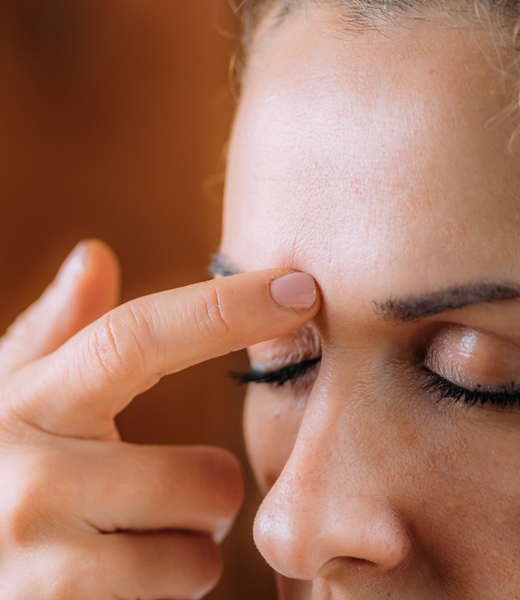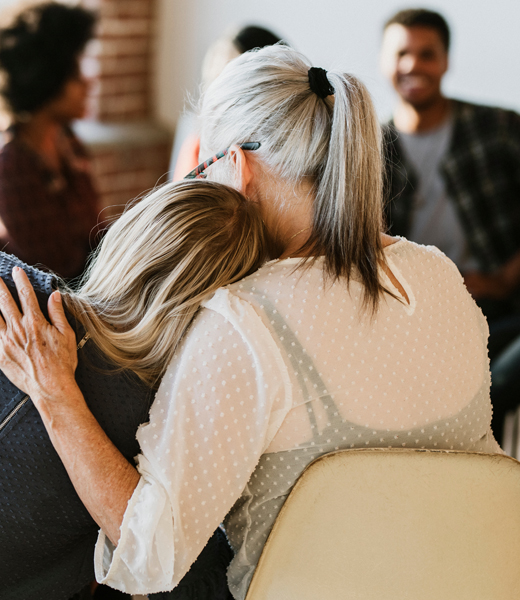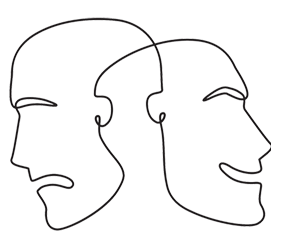Treatment for PTSD
Support Groups for PTSD
Every occurrence that causes you to fear for your safety can result in PTSD.

What is PTSD?
Support Groups for PTSD
What is PTSD?
It's common to feel scared, unhappy, nervous, and alienated after a stressful event. Yet if the distress persists, you can have post-traumatic stress disorder (PTSD). Every occurrence that causes you to fear for your safety can result in PTSD. Military warfare is the most common cause of PTSD in men, and the majority of people link it with rape or troops who have been in battle. But, any event, or set of events, that leaves you feeling emotionally depleted and overwhelms you with emotions of helplessness and hopelessness can cause PTSD—especially if the experience feels unpredictable and out of your control.
PTSD can impact those who directly encounter a horrific event, those who watch the event, and those who clean up the aftermath, such as emergency personnel and law enforcement officials. It can even manifest in the friends or relatives of those who experienced the initial trauma. By seeking treatment, reaching out for support, and establishing new coping skills, you can learn to manage your PTSD symptoms, lessen traumatic memories, and go on with your life, regardless of the source.
What brings on PTSD?
Your nervous system responds to a stressful incident with the fight-or-flight response. Your strength and response time increase as a result of your heart beating more quickly, your blood pressure rising, and your muscles becoming tighter. Your nervous system soothes your body when a threat has passed, allowing your heart rate and blood pressure to return to normal.
When a circumstance causes you to feel excessive stress, PTSD develops. Despite the fact that the threat has gone, your nervous system is "stuck," unable to return to its regular state of equilibrium, and you are unable to move on from the incident. Helping your nervous system "unstick" will enable you to heal and move past the trauma as you recover from PTSD.
A typical reaction to distressing circumstances versus PTSD
Nearly everyone exhibits at least some PTSD symptoms after experiencing a stressful incident such a natural disaster, auto accident, terrorist attack, or assault. It's common to feel off-balance, distant, or numb when your feeling of safety and trust are violated. It's fairly typical to experience nightmares, experience fear, and find it difficult to stop reflecting about what happened. These are typical responses to strange events.
Yet, for the majority of people, these symptoms pass quickly. These may last for a few days or even weeks before eventually disappearing. Nevertheless, if you have post-traumatic stress disorder, your symptoms do not improve with each passing day. You might even start to feel worse.
PTSD warning signs and symptoms
Because everyone's neurological system and level of stress tolerance varies slightly from person to person, PTSD manifests itself differently in each individual. Although you're most likely to experience PTSD symptoms in the hours or days after a traumatic event, they can occasionally take weeks, months, or even years to manifest. Sometimes symptoms seem to emerge out of nowhere. At times, they are brought on by things that bring up memories of the original traumatic experience, like sounds, sights, words, smells, or images.
There are four primary categories of PTSD symptoms, despite the fact that each individual experiences the disorder differently.
Reliving the traumatic experience via intrusive recollections, flashbacks, or acute mental or bodily responses when reminded of the trauma.
Avoidance and numbness, such as avoiding anything that reminds you of the trauma, forgetting certain portions of the ordeal, losing interest in activities and life in general, feeling emotionally numb and separate from others, and a sense of a limited future.
Hyperarousal, which includes sleep disturbances, impatience, hypervigilance (on constant "red alert"), feeling jumpy or easily startled, violent outbursts, and aggressive, self-destructive, or risky behavior.
Negative thoughts and mood shifts, such as feeling alienated and alone, having trouble concentrating or remembering, experiencing melancholy and hopelessness, feeling mistrust and betrayal, and experiencing guilt, shame, or self-blame are all symptoms of depression.
PTSD symptoms in youngsters
PTSD symptoms in children, particularly in very young children, may differ from those in adults and may include:
- Concern for separation from their parents.
- Loss of formerly acquired skills (such as toilet training).
- Sleep problems and nightmares.
- Tragic, compulsive play in which traumatic themes or aspects are repeated.
- New phobias and anxieties that do not appear to be related to the trauma.
- Playing out the trauma through stories, drawings, or play.
- Without apparent cause, aches and pains
- irritability and hostility
Do you suffer from PTSD?
If you answered yes to three or more of the following questions, you may have PTSD and should see a qualified mental health professional.
- Have you ever witnessed or been a victim of a traumatic, life-threatening event?
- Were you terrified, horrified, or helpless as a result of this experience?
- Do you find it difficult to forget the event?
- Do you flinch more easily and feel angrier or more irritable than you did before the incident?
- Do you go out of your way to avoid things, people, and thoughts that remind you of the event?
- Do you find it more difficult to sleep or concentrate now than you did before the event?
- Have you had your symptoms for more than a month?
- Can you work or function normally despite your distress?
Risk factors for PTSD
Although it is impossible to predict who will develop PTSD following a traumatic event, there are some factors that increase your chances.
The nature of the traumatic event itself influences numerous risk factors. Traumatic events that pose a serious threat to your life or personal safety are more likely to result in PTSD. The greater the severity and duration of the threat, the greater the risk of developing PTSD in response. Additionally, intentional, human-caused harm—such as rape, assault, and torture—often has a greater psychological impact than "acts of God" or other, more impersonal accidents and disasters. The degree to which the traumatic event was unexpected, uncontrollable, and unavoidable is also a factor.
Other PTSD risk factors include:
- Previous traumatic experiences, particularly in childhood.
- There is a family history of PTSD or depression.
- An abusive past, either physically or sexually.
- Substance abuse history.
- Anxiety, depression, or another mental illness in the past.
Trauma types
Trauma or PTSD symptoms can arise from a variety of painful experiences, such as assault, neglect or abuse as a kid, racism, an accident, a natural disaster, or military combat.
PTSD in former soldiers: Too many veterans find that dealing with PTSD symptoms after leaving the military is difficult. It's possible that leaving the military will be difficult for you to adjust to. Or you might feel tense all the time, emotionally numb and disconnected, on the verge of panicking, or even about to blow up. It's crucial to realize that you're not alone, that there are many methods to deal with nightmares and flashbacks, with emotions of melancholy, anxiety, or guilt, and that you may reclaim control by learning how to manage these issues.
Psychological and emotional harm: You might have been traumatized if you went through a particularly traumatic event—or set of events—that left you feeling powerless and out of control emotionally. Yet, any incident that shatters your sense of safety can leave you feeling traumatized, whether it be an accident, an injury, the unexpected death of a loved one, bullying, domestic abuse, or a profoundly humiliating encounter. Psychological trauma frequently has its roots in childhood. You can move past the suffering, regain your sense of security, and move on with your life, regardless of how long ago the tragedy occurred.
Racial or sexual abuse: The trauma of being sexually attacked or raped can be catastrophic. You can experience nightmares, flashbacks, and other recurring negative memories, or you might just feel afraid, embarrassed, and alone. Yet, despite how terrible you might feel right now, it's critical to keep in mind that you weren't at fault for what took place and that you can reclaim your sense of security, trust, and self-worth.
Trauma of race: Racist abuse, prejudice, or injustice are the causes of race-based traumatic stress. It can cause anxiety, sadness, chronic stress, high blood pressure, disordered eating, substance misuse, and even PTSD symptoms such as hypervigilance, negative thoughts, and mood changes. But, there are techniques to increase your resiliency and safeguard your mental wellbeing.
Complex PTSD (CPTSD): What is it?
Many people believe that complex post-traumatic stress disorder (CPTSD or C-PTSD) is a more severe form of PTSD. Chronic exposure to traumatic experiences is the cause of it. Years of chronic domestic abuse, such as if you were raised in an abusive home, may cause CPTSD. This illness may also affect people who have been subjected to slavery or torture for an extended period of time.
Several of the same PTSD symptoms, including hypervigilance, flashbacks, and emotional numbness, as well as the following may be present in those with CPTSD:
- Notions that you have about yourself. You battle persistent feelings of worthlessness and crippling guilt.
- regulating emotions is challenging. You react strongly, experience oversensitivity, and fight to control your rage. Dissociation, or a sense of being cut off from the world, could happen to you.
- Having relational issues. You struggle to build and sustain friendships and romantic connections. Isolation-related feelings are frequent.
- There are certain symptoms of borderline personality disorder and complex PTSD that are similar (BPD). Trauma may contribute to BPD development in many persons.
The following pointers can give practical solutions to assist you in healing and moving on, regardless of your own experiences or PTSD symptoms:
- Self-help advice for PTSD #1: Fight your sense of helplessness.
- The process of getting over PTSD is gradual and continual. Both recovery and the ability to recall the trauma are processes that take time. This might occasionally make life seem challenging. But, there are several actions you may do to manage the lingering effects and lessen your dread and anxiety.
- The key to recovering from PTSD is getting past your sense of helplessness. Trauma makes you feel defenseless and exposed. It's critical to constantly remind yourself of your strengths and coping mechanisms so that you can get through challenging situations.
- Giving back to others, whether it be through volunteer work, blood donation, helping a friend in need, or making a donation to your favorite cause, is one of the finest ways to regain your sense of power. Positive action directly combats the helplessness that is a common PTSD symptom.
Getting PTSD help from a professional
It's critical to get care as soon as possible if you think you could have post-traumatic stress disorder or a loved one might. The easier it is to recover from PTSD, the earlier it is addressed. The only way to overcome PTSD is to face what occurred to you and come to terms with it as a part of your history, so if you're hesitant to get treatment, remember that PTSD is not a sign of weakness. Having a skilled therapist or doctor to provide direction and assistance makes this process much simpler.
It makes sense that you would want to keep hurtful thoughts and emotions at bay. But, PTSD will worsen if you try to numb yourself and ignore your memories. You can't entirely control your emotions; they surface under duress or whenever you let your guard down, and attempting to do so is draining. Your relationships, your capacity for function, and the quality of your life will all suffer as a result of the avoidance.
Why getting PTSD treatment is important
Prevention is better than cure. PTSD symptoms may deteriorate further. By addressing them now, you might be able to prevent future deterioration. Learning more about effective therapies, helpful resources, and appropriate inquiries can make it simpler to receive assistance and provide better results.
The effects of PTSD can alter family dynamics. Your family life may suffer as a result of your PTSD symptoms. You might notice that you withdraw from close relationships, struggle to get along with others, or become irate or even aggressive. Receiving PTSD treatment can enhance your family life.
PTSD and other medical conditions can coexist. Physical health issues can worsen as a result of PTSD symptoms. Studies, for instance, have revealed a link between PTSD and heart issues. Receiving PTSD treatment may also enhance your physical well-being.
There are several PTSD therapy options, including:
In trauma-focused cognitive-behavioral therapy, you gradually "expose" yourself to emotions and circumstances that trigger the trauma while also replacing distorted and irrational thinking with more realistic ones.
Family counseling can assist you in resolving conflict within your family and in helping your loved ones comprehend what you're going through.
Although they don't address the underlying causes of PTSD, medications are occasionally recommended to patients with PTSD to alleviate secondary symptoms of depression or anxiety.
Eye movements or other rhythmic, left-to-right stimulation, such as hand tapping or sounds, are combined with cognitive-behavioral therapy components in EMDR (Eye Movement Desensitization and Reprocessing). The information processing mechanism in the brain, which is disrupted during times of extreme stress, is "unfrozen" through EMDR therapy techniques.
Finding a PTSD Therapist
Seek out mental health professionals who specialize in the treatment of trauma and PTSD when looking for a therapist. You can get a referral from your doctor or other trauma survivors, or you can contact a local mental health clinic, psychiatric hospital, or counseling center.
Helping a PTSD survivor
It can be quite difficult to deal with someone you care about having post-traumatic stress disorder. Yet by following these instructions, you can assist your loved one in continuing their life.
Living with a PTSD sufferer
You are impacted if a spouse, acquaintance, or family member suffers post-traumatic stress disorder (PTSD). Living with PTSD is difficult, and it can have a negative impact on personal and family connections. You could find it difficult to comprehend your loved one's behavior—why they are less affectionate and more volatile—or wounded by their remoteness and moodiness. You might experience living with a stranger or walking on eggshells. Also, you might need to handle a greater proportion of the household's chores and the annoyance of a loved one who won't talk to you. Even worse, PTSD symptoms can result in family-wide issues like substance abuse, job loss, and other issues.
It can be challenging to not take PTSD symptoms personally, but it's crucial to understand that a person with PTSD might not always be in control of their conduct. As a result of their nervous system being "locked" in a state of perpetual alert, your loved one may constantly feel vulnerable and dangerous or be forced to repeatedly relive the terrible event. This can result in PTSD symptoms that your loved one can't just decide to turn off, such as rage, impatience, despair, mistrust, and others.
But, with the proper assistance from you and other family members and friends, your loved one's nervous system may "unstick." With the help of these suggestions, you may assist them in healing from the terrible experience and allow your relationship to resume normalcy.
Let's Talk
You will receive a 15 minute phone call from our group leader, as an introduction to the program and to discuss suitability. This is free and without obligation.


















